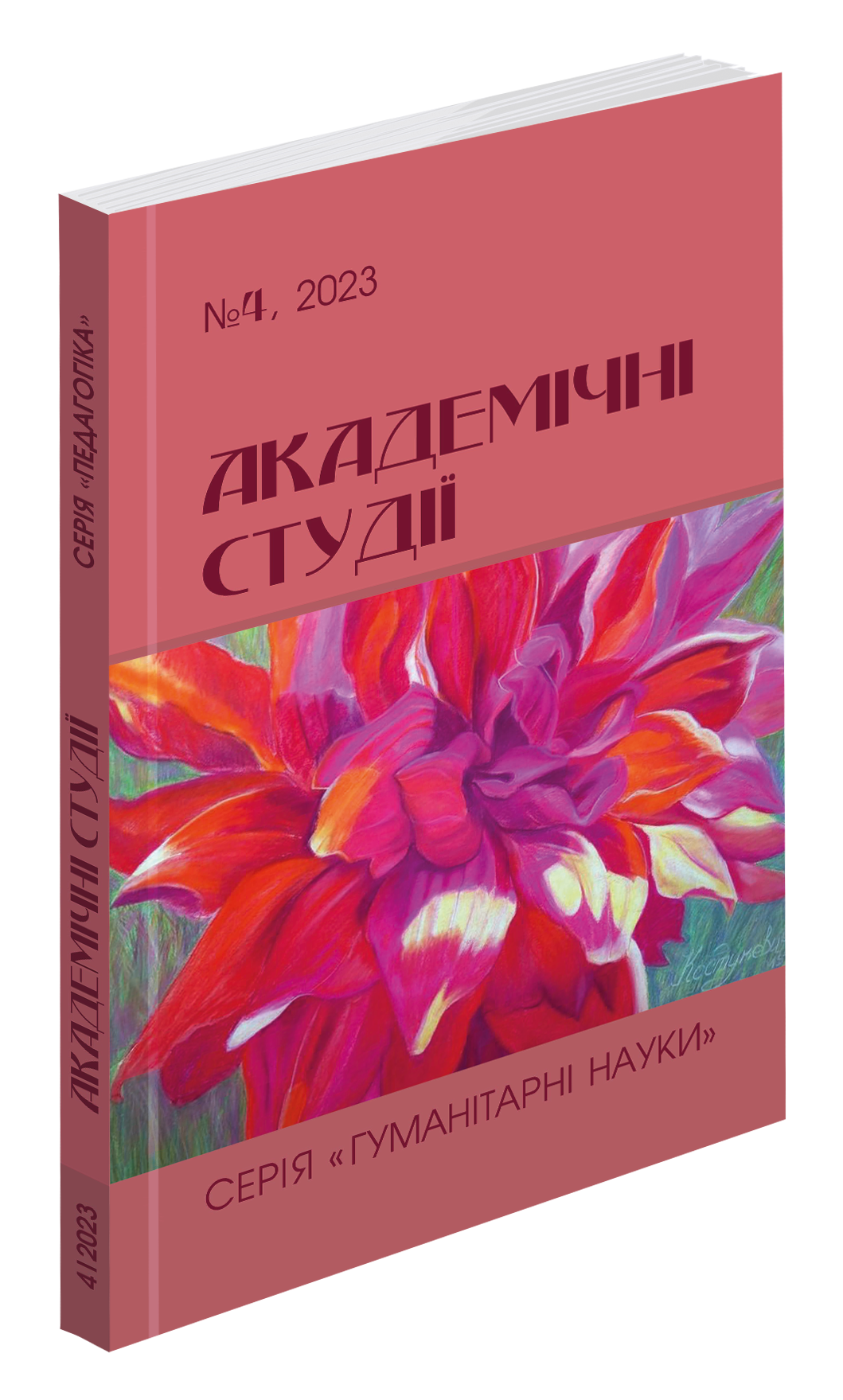Abstract
The article analyzes the literary works of O. Kobylianska, focusing on the portrayal of the crime issue, particularly murders for various motives: accidental killings, intentional acts with lucrative impulse, as well as revenge and retribution. Encroachment on someone else's property became the cause of crime in the novellas “But the Lord is Silent” and “The Moon”, while marital betrayal and adultery with a married woman lead to tragedy in the novellas “Holy Mother of God, Have Mercy on Us!” and “Putifara”. Alcoholism and domestic violence took the life of the hero from the novel “Warm the Children, O Sun”, and careless handling of weapons becomes fatal in the novel “Moscow Gweru”. The problem of murder also emerges in works that, in terms of genre and style, fit into the fairy tale genre (“Vorozhka” and “Mr. Wizard”). From the Christian perspective, murder is considered one of the gravest sins, often stemming from temptation, which the characters of Kobylianska's works succumb to and deliberately take the lives of others. It is established that most crimes have a cause-effect nature and are committed in a state of intense emotional excitement, occasionally through premeditation. Each murderer pays for their sin with either emotional suffering, loss of freedom, or their own life. In Kobylianska's novellas, symbols and artistic details serve an emotionally-enhancing function, vividly illustrating the narrative and emphasizing the plot and compositional components of the works. The symbolism of artistic images such as the moon, sun, clock, eyes, axe, frog, and apple tree is highlighted and explored. Simultaneously, it is generalized that nature plays a significant role in the analyzed works, acting as a direct participant in the events, with its condition corresponding to the psychology and inner world of the characters. It is crucial to note that the crimes often occur during the dark hours of the day.
References
Біблія або Книги Святого Письма Старого й Нового Заповіту / пер. проф. І. Огієнка. Українське Біблійне Товариство, 2009. 1151 с.
Кирилюк С. Людина у світі і світ у людині : елементи фантастичного у творчості Ольги Кобилянської // Національна своєрідність української літератури фентезі. Збірник матеріалів наукових семінарів Центру з Дослідження Літератури Фентезі при Інституті літератури ім. Т. Г. Шевченка НАН України (22 листопада 2017, 27 квітня 2018) / Ред. Рязанцева Т. М., Канчура Є. О. Київ, 2019. С. 21–30.
Кирилюк С. Поетика межі в українській прозі fin de siècle. URL : https://dspace.uzhnu.edu.ua/jspui/bitstream/lib/22384/1/%D0%A1%D0%B2%D1%96%D1%82%D0%BB%D0%B0%D0%BD%D0%B0%20%D0%9A%D0%98%D0%A0%D0%98%D0%9B%D0%AE%D0%9A%20%28%D0%A7%D0%B5%D1%80%D0%BD%D1%96%D0%-B2%D1%86%D1%96%29.pdf
Кобилянська О. Зібрання творів : у 10 т. Т. 2 : Новели. Оповідання. Поезії в прозі / Упорядкув. : В. І. Антофійчук, С. Д. Кирилюк, Я. Б. Мельничук ; прим. : В. І. Антофійчук, С. Д. Кирилюк. Чернівці : Букрек, 2014. 476 с.
Ковалець Л. Діти в художньому світі Ольги Кобилянської // Ольга Кобилянська – письменниця і громадянка : національне і загальнолюдське. До 140-річчя від дня народження. Науковий вісник Чернівецького університету. Слов’янська філологія. Вип. 216–217. : зб. наук. пр. Чернівці : Книги – ХХІ, 2004. С. 43–46.
Мельничук Я. Місце творів Ольги Кобилянської 1920–1930-х рр. у художній спадщині письменниці // Ольга Кобилянська – письменниця і громадянка : національне і загальнолюдське. До 140-річчя від дня народження. Науковий вісник Чернівецького університету. Слов’янська філологія. Вип. 216–217 : зб. наук. пр. Чернівці : Книги – ХХІ, 2004. С. 90–93.
Процик І. Психологізм і символіка оповідань О. Кобилянської // Науковий вісник Чернівецького національного університету імені Юрія Федьковича : зб. наук. праць. Вип. 697–699 : Слов’янська філологія. / Наук. ред. Б. І. Бунчук. Чернівці : Чернівецький нац. ун-т, 2013. С. 127–131.

